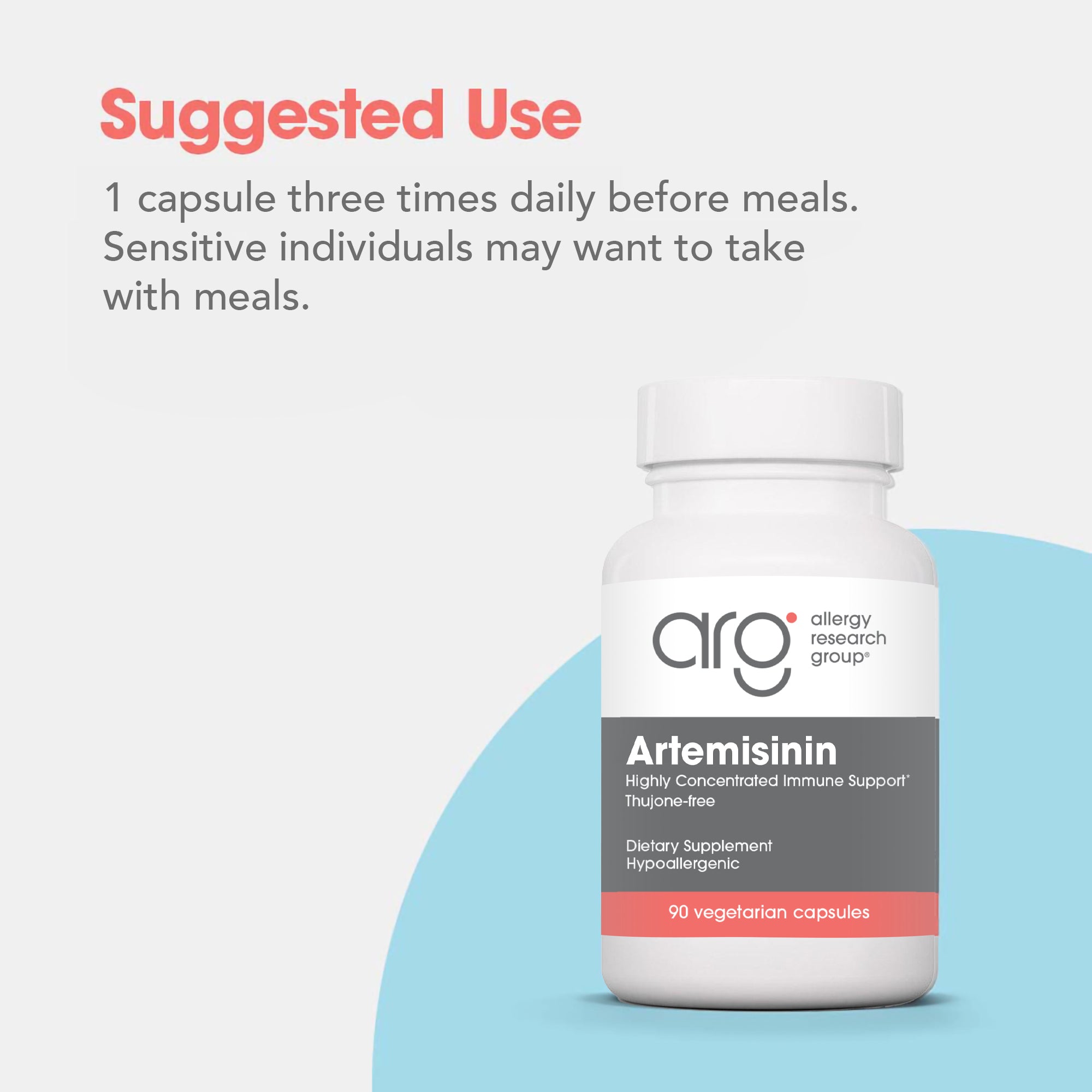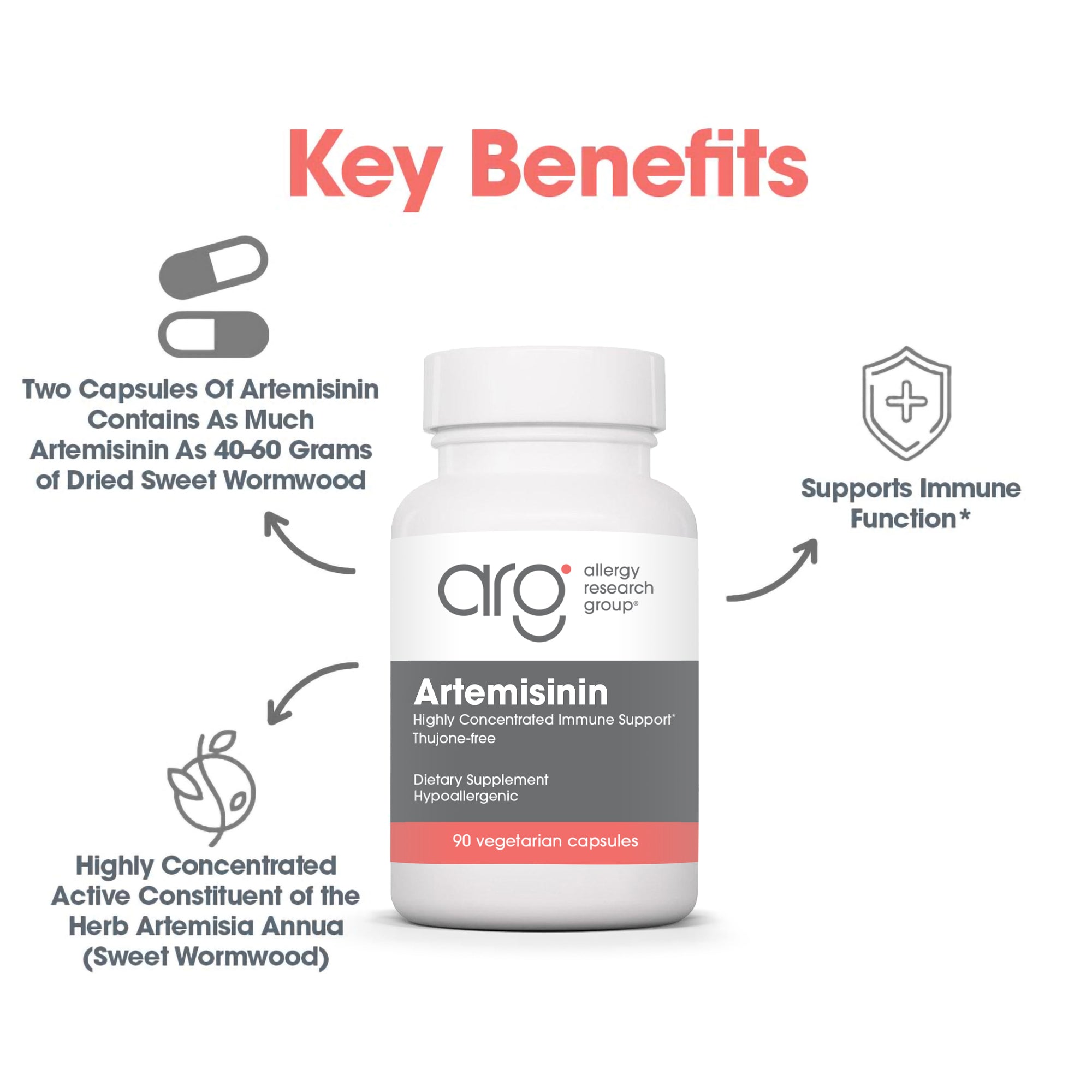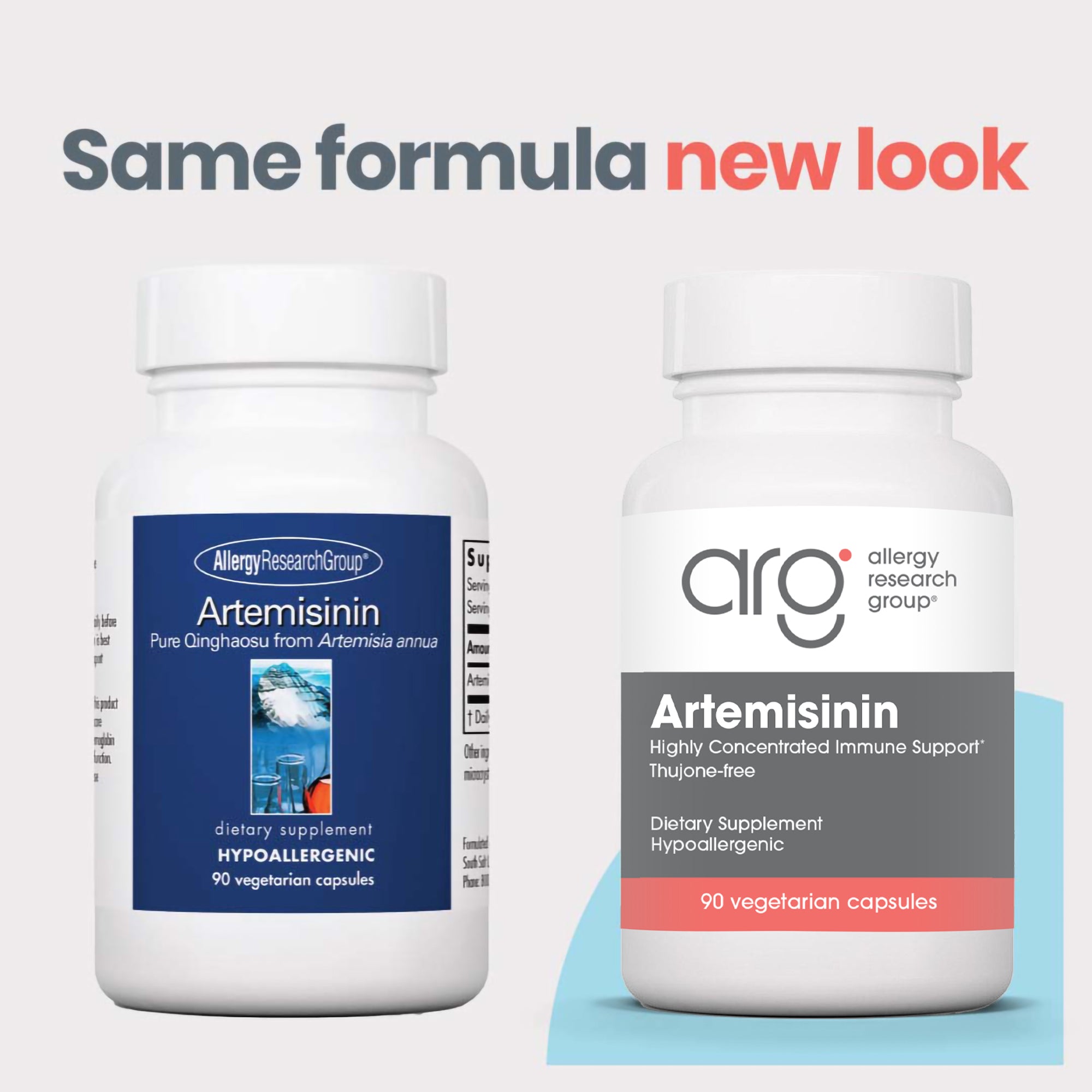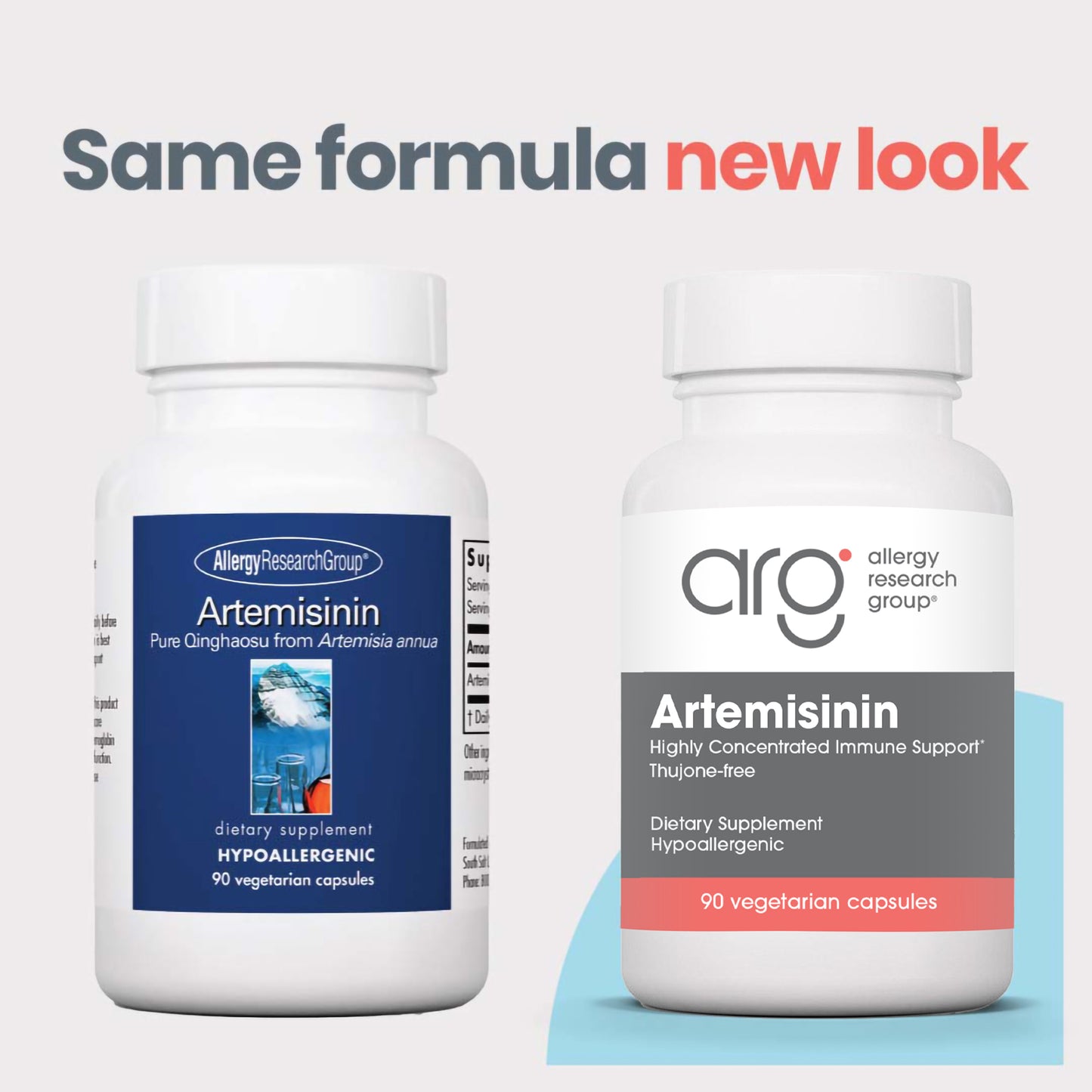













SKU:72160
Artemisinin
Artemisinin
Highly Concentrated Immune Support*
Product Description
Artemisinin delivers a highly concentrated extract of Artemisia annua to support immune modulation, gastrointestinal health, liver detoxification, and oxidative balance.* This professional-grade formula is trusted by practitioners for targeted support of cytokine regulation, digestive resilience, and metabolic detox pathways.* Ideal for use under healthcare practitioner guidance during periods of immune or metabolic stress.* Artemisinin provides hundreds of times more of the active constituent artemisinin than the whole herb itself.* ARG Artemisinin is minimum 98.5% pure, and does not contain thujone.*
Couldn't load pickup availability







-
Ingredients -
Product Information -
Suggested Use
Ingredients:
Serving Size: 2 capsules
Servings Per Container: 45
Amount per Serving:
Artemisinin: 200 mg
Other Ingredients:
Hydroxypropyl methylcellulose, microcrystalline cellulose, rice hull concentrate, gum arabic, sunflower oil.
Variations in product color may occur. Keep in a cool, dry place, tightly capped.
Targeted Artemisinin Support for Immune, Gut, Liver, and Cellular Health*
What It Does
Artemisinin provides targeted support for immune system balance, gastrointestinal health, liver detoxification, and cellular oxidative stress regulation.* Sourced from Artemisia annua, this purified form allows for consistent, concentrated delivery of the plant’s most studied and biologically active compound.*
How It Works
• Artemisinin (from Artemisia annua): Supports immune modulation by influencing cytokine pathways, including NF-κB and MAPK signaling, and promoting mucosal integrity in the gut.*[2]
• Bitter Tonic Action: As a bitter compound, artemisinin may help prime digestion and modulate the gut microbiota, supporting gastrointestinal balance and healthy digestive processes.*[3,4]
• Oxidative Stress Regulation: Shown to assist in modulating redox balance and cellular antioxidant defenses, supporting healthy cellular metabolism.*[4]
• Liver Function Support: May enhance detoxification enzyme activity and regulate oxidative and metabolic pathways essential for liver efficiency and overall hepatic resilience.*[5,1]
• Pure and Concentrated: Each capsule provides a purified source of artemisinin without the variability of whole-plant extracts, where active content is typically just 0.3–0.5%.*[1]
Who It’s For
Ideal for individuals seeking focused support for immune regulation, gastrointestinal health, detoxification, and oxidative balance, especially those working with healthcare practitioners familiar with advanced botanical interventions.*
Special Features
For over 30 years, ARG has delivered purified artemisinin to healthcare practitioners. This formula ensures high quality, consistent potency, and professional-grade purity, distinguishing it from typical plant extracts.*
References
1. Golenser J, et al. Int J Parasitol. 2006;36(14):1427–1441.
2. Wang KS, et al. Immunopharmacol Immunotoxicol. 2017;39(1):28–36.
3. Lee JH, et al. Hortic Environ Biotechnol. 2015;56:697–703.
4. Addissouky TA. Discov Chem. 2025;2:10. doi:10.1007/s44371-025-00084-4
5. Xiong Y, Huang J. Chin Med. 2021;16:80. doi:10.1186/s13020-021-00489-0
Suggested use:
As a dietary supplement, take 1 capsule three times daily before meals, or as directed by a healthcare practitioner. Sensitive individuals may want to take with meals.
Warning:
If you are pregnant or lactating, have any health condition or are taking any medication, consult your healthcare practitioner before use.
Store in a cool, dry place, tightly capped, away from light. Keep out of the reach of children. Use only if safety seal is intact. Variations in product color may occur.
Stay Connected
Sign up and we’ll keep you up to date on the latest news, clinical education resources, product innovations and promotions.
